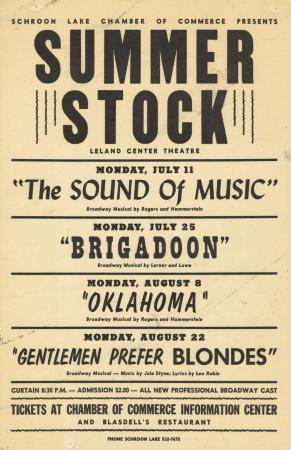Fresh off a Paw Patrol Live! National Tour, professional actor and Emerson College grad, Gian Raffaele DiCostanzo, gives HonesThespian readers the inside scoop on what he thinks makes the perfect resumé.

I love making and formatting resumés. It’s one of those oddities that I just find really enjoyable. Your theatrical resumé represents you. It’s an awkward-sized piece of paper, stapled to the back of a photo of your face— super classy. Although they are weird, our resumés say a lot about us— literally.
When formatting your theatrical resumé, here are some tips to make it clean, concise, and eye-catching:
Format your margins for easy cutting. Having to cut your resumé down to 8×10 inches is incredibly annoying, and most of us don’t have a precision paper cutter in our homes or apartments, so to the scissors we take (or head to FedEx Office). It’s very important that when making the cuts to your paper, you don’t cut off any of the information on your resumé. To ensure that all of your information fits, use the margin settings in your word processor to set your margins to the following measurements:
• Top – 0.5 in. • Left – 0.5 in. • Right – 0.5 in. • Bottom – 1 in.
Use a clean, clear, legible font. There are a plethora of fonts available whether you use Pages or Microsoft Word, but be sure to choose one that is easy to read. We all want to stand out in some way, which is great, but using a font like Comic Sans or Snell Roundhand isn’t the way to go. It’s important to choose a font you like and that reflects your personality, but keep it professional and legible. Casting Directors need to be able to skim all of the information presented on your resumé in the quick minute and a half you’re in the audition room.
Use Bold, Italics, and Underline for clear definition. Resumés have a lot of information smushed onto the page, so putting section titles in bold or underline is very helpful for the casting team. It helps to format your resumé and helps the casting team to easily identify the work that you have done. When listing the title of the work you have done, it’s great to use italics or capitalization to differentiate between the role you had in the production and where it took place. Again— easy to read, easy to follow.
Take advantage of the table feature in your word processor. Using a table to format your resumé is the best way to keep all of your work in-line and organized. Be sure to make the table gridlines invisible so that there are no lines dividing your work.
Present personal information in a clean, concise manner. Your resumé should include the following personal information: full name (large and at the top), height, weight (if you want), voice part, hair and eye color, email address, website (if applicable), and union status (if applicable).
Organize it. The best way to organize a resumé is with your personal information at the top. It’s who you are, it’s the information they need to know— the basics. Under your personal information create sections in order of most relevant— traditionally, that would be Broadway, National Tours, Off-Broadway, and Regional Theatre. But if you haven’t been on Broadway (like most of us), list the sections in the order of what you believe to be most relevant and important to your career path. Under your theatrical credits, you can include any relevant film or TV credits or event credits that you would like to showcase. Beneath your credits, include any relevant theatrical, musical, or dance training you have received. Under your training section, include a section for your special skills. This section can contain any information that makes you special— do you juggle? Make funny voices? Can you do a handstand? Play any sports? Instruments? Burp the ABCs? All of it is good. Anything that makes you YOU should be in that section.
Give credit where credit is due. Connections are a super important part of our industry as performers. If you have worked with someone of note (directors, choreographers, music directors who have worked on Broadway, Off-Broadway, etc.), credit them on your resumé! Casting directors will look at WHERE you have worked and WHO you have worked with. They know you can be in a show, memorize lines, etc. They know you can be Ado Annie or Harold Hill or Townsperson #4. You wouldn’t be auditioning if you couldn’t. Casting teams are seeing hundreds of people at a time, all of whom are probably extremely talented. At that point, they also want to see the type of people or places you are working with— if the companies have good reputations, to what caliber you have been performing, and they may even personally know someone whom you have listed on your resumé. Casting teams can be in contact with former employers to ask about you, your work ethic, and your personality. So, while it’s important to credit the work you’ve done, it’s just as important to credit the people you have worked with and the places you have worked.
Resumés are an important part of who we are as performers and it’s the way in which we present ourselves. So, make it count. Make it pretty. Make it easy to read. Make it yours.
Gian offers many services for emerging and professional actors. You can reach him by visiting his website.
-Website Building & Designing
-Resume Formatting
-Reel Editing & Design
-Music Transcription
-Dialect Coaching
http://www.gianraffaeledicostanzo.com








